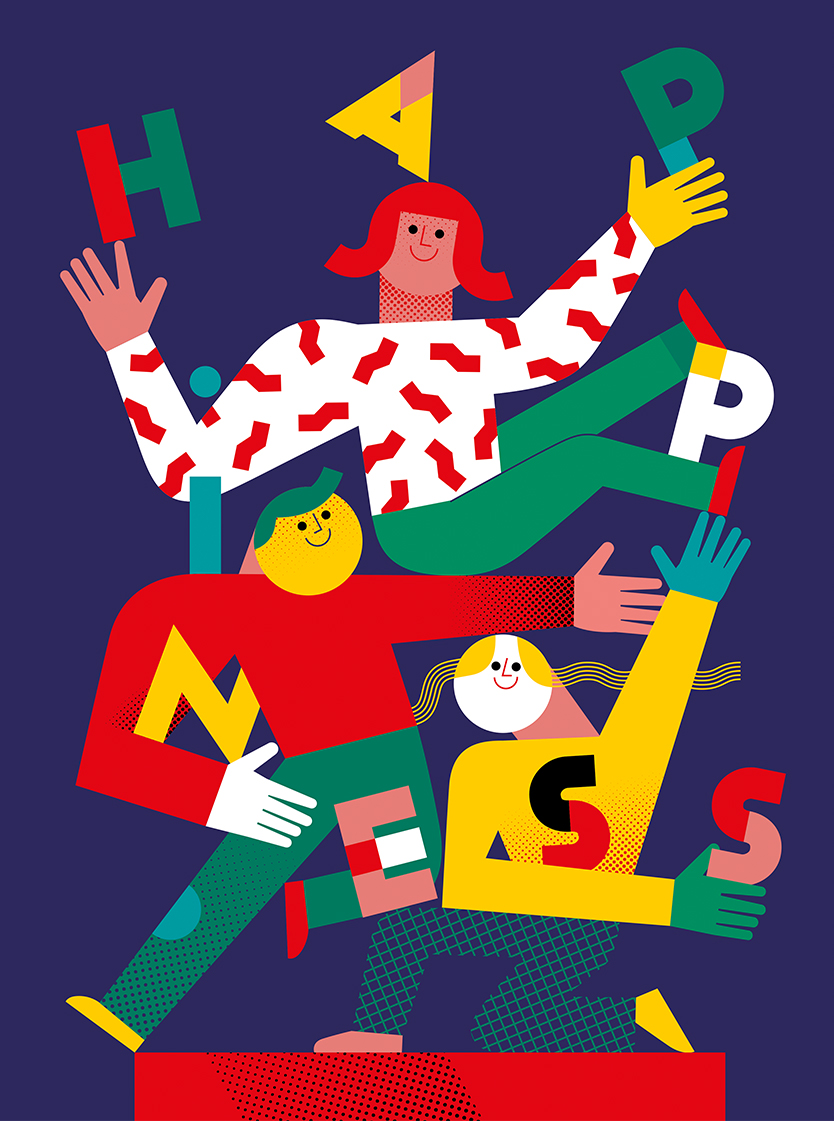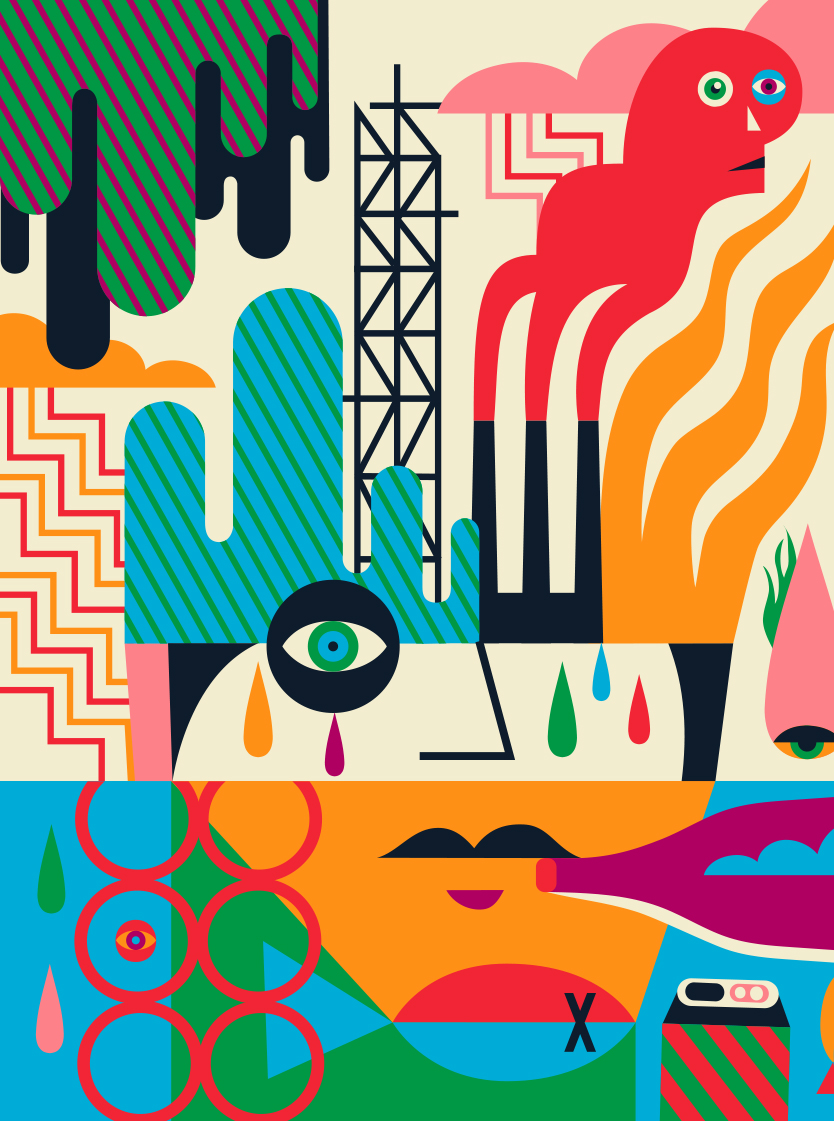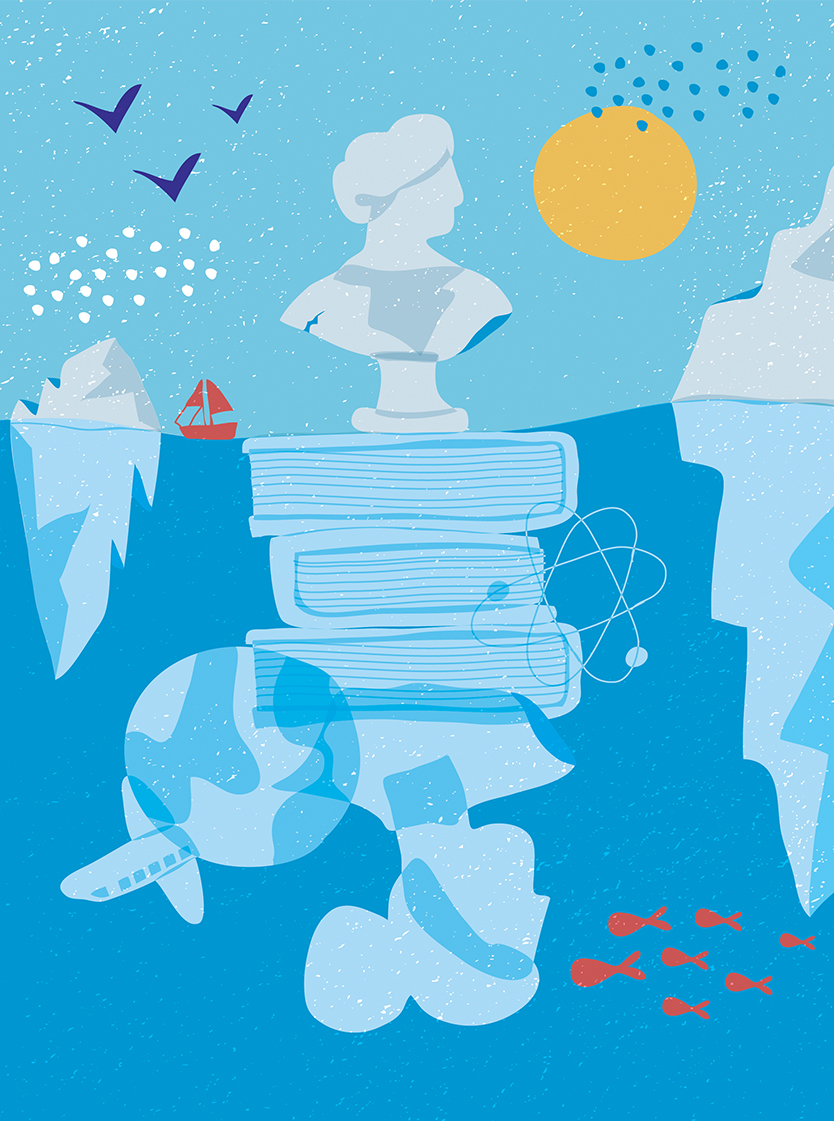In pursuit of a more meaningful life
By Gaurav Sinha

Luca Di Bartolomeo

The selfish trajectory of modern society is hurting both the planet and its people, writes Gaurav Sinha. For the good of humanity, we need to change our current culture of consumption by becoming more mindful and considered about the choices we make and how we spend our money.
Sometimes you need to attend a funeral to really understand the value of life. This is exactly what happened to me recently, as I attended a sombre ceremony to pay homage to the life of my dear friend’s father, who passed away at the age of 85.
Let me remind you, human life is a fleeting affair and time is scarce for all of us on this planet. Today, we live in a world riddled with complexities and our lives are layered with multiple obligations and aspirations, so it’s important we don’t waste our time chasing goals that do not nourish our true purpose and potential.
So, the big question is, how do we live a meaningful life? Modern society recognises a successful life by measuring one’s ability to consume, but a meaningful life is a purposeful one, which creates positive impact for both one’s self and others. It’s a life lived with principled passion and a quest to create more than one consumes, and we all have an obligation to rise above greed and ego and shape a future based on knowledge and virtue.
To give you context, I am a brand strategist who makes people fall in love with places. I decode human aspirations to code brand culture and strategies, helping hospitality, tourism and destination brands articulate their enduring essence and build defensible differentiation. I do this, because I believe travel is a transformative experience that changes perspectives, shapes culture and enriches lives. Travel is the ultimate expression of self-advancement as every journey one embarks on is to improve one’s life, whether you are recovering from an illness, closing a business deal or spending time with family.
Similarly, hospitality is the frontline of cultural diplomacy for a nation. How hospitable you are as a country impacts your position on the world stage, grows your economy and allows you to elevate your culture as a people; and hoteliers, wherever they are, are custodians of a nation’s culture.
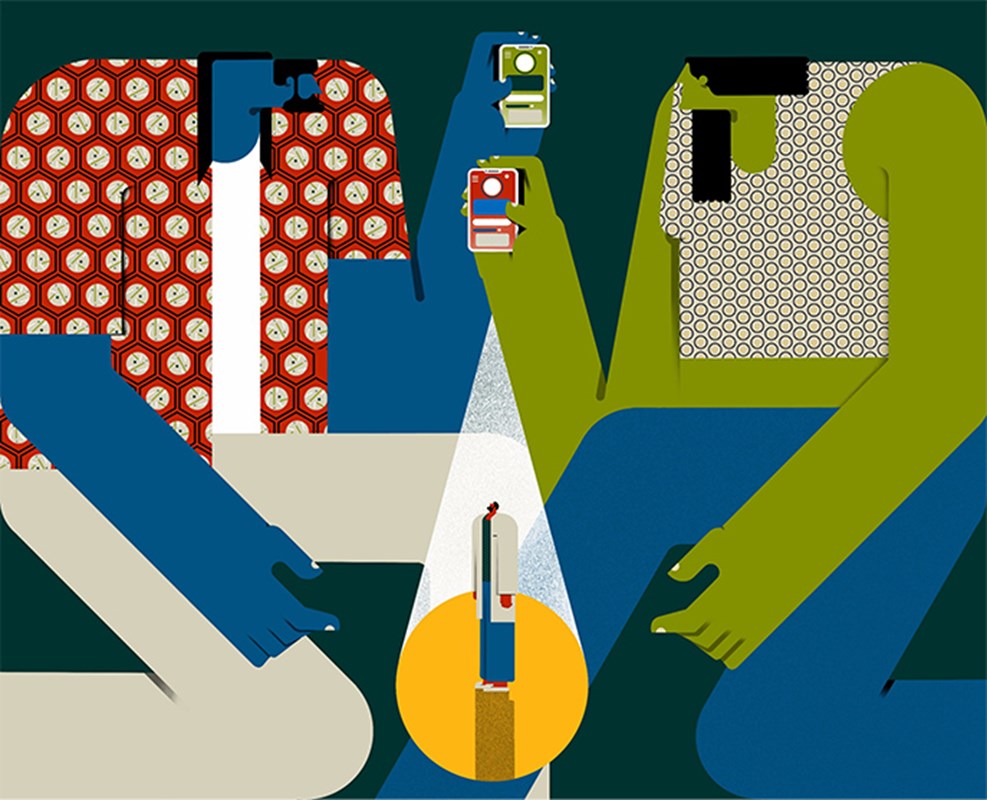
“We can only rise when we lift others”
Gaurav Sinha
My work as an anthropologist, author and an activist has also led me to believe culture is a cognitive prison, and we are currently handcuffed to a version of capitalism that encourages mindless consumption and rewards predatory profiteering. This breathless race to the bottom is hurting both the planet and its people and we must pause and reflect on the impact of our choices. This is not an argument against capitalism, but a challenge to the current culture of consumption, where our choices and desires for material gratification come at the expense of our personal economies. We are a surplus society living in a deficit economy, always hungry for more and more.
For the good of humanity, we need to change our current culture of consumption by becoming more mindful and considered about the choices we make and how we spend our money. A meaningful life enriches the lives of others and creates positive impact for the planet and its people. In my book, Compassion Inc. I talk about ‘monastic materialism’, as a lifestyle centred around humanism, not minimalism. This is mindful consumption that ensures you live an equitable life, without denying yourself or causing harm to the planet and its people.
At the centre of a meaningful life, is a compassionate heart. To make the world a better place, we need to build a culture of kindness that bonds humanity and we can only do this if we change the vocabulary of success. In my opinion, culture can be defined as ‘a set of shared beliefs that drives natural behaviour’ and the transference of these values and beliefs is predominantly a consequence of language. We exchange our values through the words we use, so unless we change the lexicon of life, how can we possibly change culture?
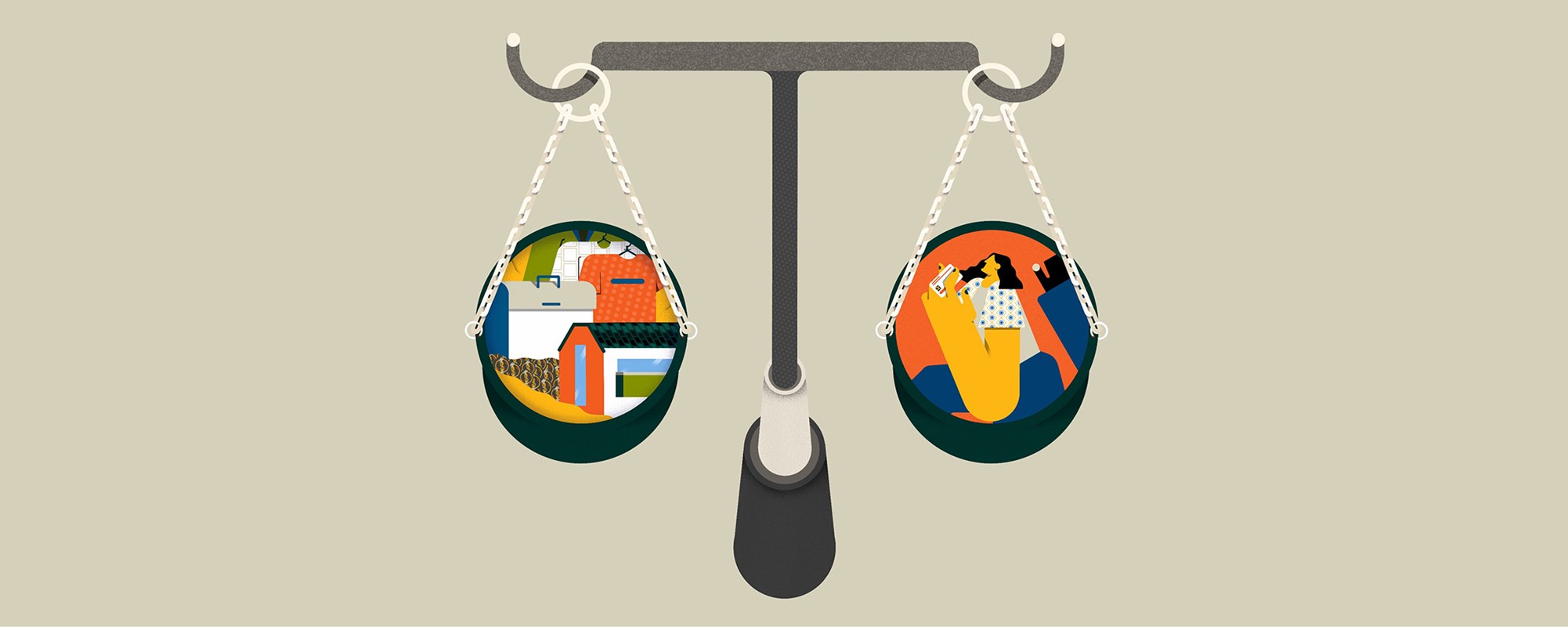
Empathy should take centre-stage in the life story of corporations and individuals alike. Companies are social organisms, not just organisations, and as much as their role is to drive value for shareholders, they also need to recognise they must align to holders of shared values. Most companies have different internal and external stakeholders, but all companies have the same corporate constituents: the planet and people. ‘Enlightened enterprises’ are companies that understand altruistic capitalism is the engine that will drive prosperity, not just profits. The privilege to produce and sell should be balanced by protecting the environment and being socially responsible, and this is not a mutually exclusive engagement.
Neo-capitalistic beliefs fuelled by compassion will grow over the coming years, as we will witness the rise of ‘altruistic aesthetes’, a new generation of consumers that is growing rapidly across the world. These are consumers who like to associate with humanist brands – they celebrate human ingenuity but also like to give back to society.
Companies that are disingenuous in their purpose will fall back as this new breed of consumers are also activists; they value transparency and will seek the truth, so hollow promises of positive impact will not count.
Compassion is powerful. It is an elixir for engagement and enrichment. Countries, cities, communities and commerce will benefit if they ignite conversations around the power of empathy. Testosterone-injected capitalism will face its own challenges, and I honestly believe the world will fatigue from the rhetoric of economists valuing companies as unicorns, while the investors lose their shirts. It’s equally important to note that kindness doesn’t translate to weakness. The empathetic ones in business can be more investable, as they will be more resilient as they value long-term growth over short-term gains.
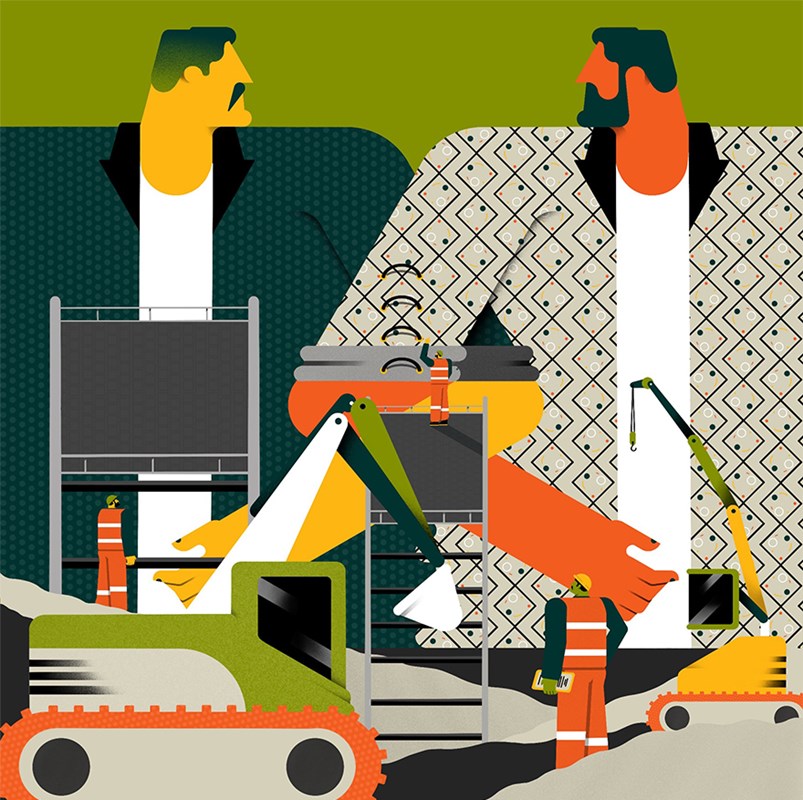
Culture begins at the top, and ‘chief empathy officers’ are necessary to drive the agenda of positive change and ensure boardroom conversations are cued to the needs of the hour. We have never been more empowered as a species and we also have an obligation to use our knowledge and experience to do the right thing, by doing things right. This means we must challenge the status quo by looking beyond the obvious and placing amplified value on the fragility of life, both as human beings and everything else that breathes on the planet. We must change our behaviour and be more mindful about consumption. We should use our time on the planet to create positive impact through ‘return on empathy’, not just investment.
These are also times of sensationalism and distrust. We don’t trust doctors, insurance companies, lawyers or even our politicians. It’s ironic, as the internet has shrunk the world onto our palms, but we are more confused and apathetic than ever before. We are misled, misfed and misunderstood, and social media is adept at blurring the boundaries between fact and fiction. People continue to seek relevance for their role in society. Every human values a sense of belonging, but how do you do this within communities that usually reward only individual achievements.
These are the grass root issues on a sociological level that will give birth to genuine, honest and kind companies as people seek alternate ideologies that fix the issues in society that are holding us back from being the best versions of ourselves.
Altruistic capitalism is conscientious capitalism. It is equitable profitability layered with honour and dignity for doing good, not just great. My biggest hope is for humanity to realise that we can only rise, when we lift others.



